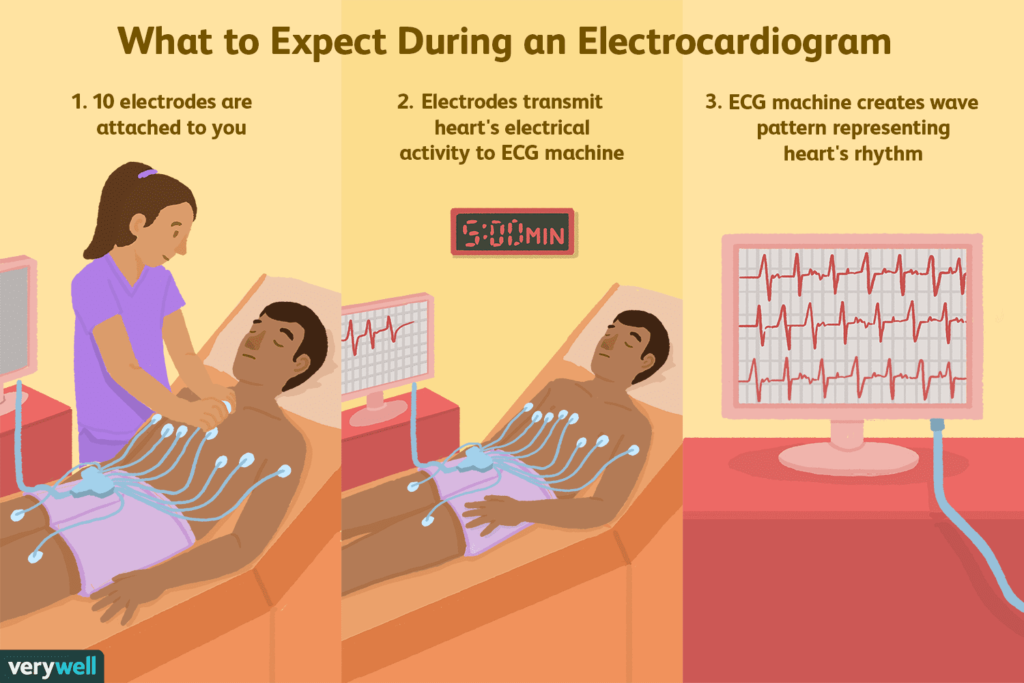What is an ECG or an EKG?
An electrocardiogram (ECG or EKG) is a test that checks how your heart is functioning by measuring the electrical activity of the heart. With each heartbeat, an electrical impulse (or wave) travels through your heart. This wave causes the muscle to squeeze and pump blood from the heart.
An ECG measures and records the electrical activity that passes through the heart. A doctor can determine if this electrical activity is regular or irregular.
An ECG may be recommended if you are experiencing arrhythmia, chest pain, or palpitations, and an abnormal ECG result can signal several different heart conditions.
Why is it done?
To detect abnormal heart rhythms that may have caused blood clots to form.
Detect heart problems, including a recent or ongoing heart attack, abnormal heart rhythms (arrhythmias), coronary artery blockage, areas of the damaged heart muscle (from a prior heart attack), enlargement of the heart, and inflammation of the sac surrounding the heart (pericarditis).
Detect non-heart conditions such as electrolyte imbalances and lung diseases.
Monitor recovery from a heart attack, progression of heart disease, or the effectiveness of certain heart medications or a pacemaker.
Rule out hidden heart disease in patients about to undergo surgery.

